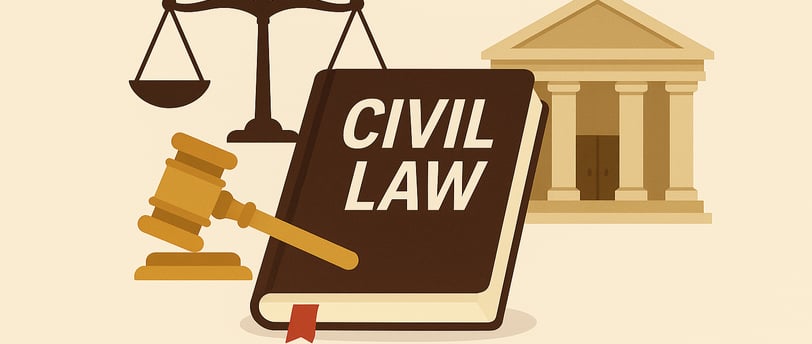Civil Transaction Law and Civil Procedures Law
Civil Transactions Law governs personal and financial dealings, while Civil Procedures Law sets the rules for handling civil disputes in court. Together, they ensure fairness, clarity, and legal protection in civil matters.
1 min read


Tenancy Disputes Between Landlord and Tenant
Legal conflicts arising from rental agreements, such as non-payment of rent, eviction, property damage, or violation of lease terms.
Compensation Cases for Injuries and Death from Accidents
Claims filed to obtain financial compensation for physical harm or loss of life caused by negligence, including workplace, road, or public accidents.
Intellectual Property
Legal protection of creations such as trademarks, copyrights, and patents, and addressing issues like infringement or unauthorized use.
Health Care and Medical Responsibility
Cases involving medical malpractice, patient rights, and liability of healthcare providers for errors or negligence in treatment.
Labor and Workers’ Disputes and Issues
Disagreements between employers and employees over contracts, wages, termination, workplace rights, and labor law compliance.
Trust and Ownership Disputes
Legal conflicts regarding property ownership, inheritance rights, and breaches of trust or fiduciary duties.
Disputes Related to Contractual Liability
Conflicts involving the breach or misinterpretation of contract terms, leading to claims for damages or specific performance.
Family Disputes of All Kinds
Legal matters such as divorce, custody, inheritance, alimony, and guardianship, often requiring sensitive and confidential handling.
Civil Fraud Disputes
Cases involving intentional deception for financial gain, including misrepresentation, forgery, or breach of fiduciary duty.
Freezing Orders and Refunding Seizures
Legal actions to freeze assets or recover unlawfully seized property, often used to secure claims or prevent asset dissipation during litigation.
